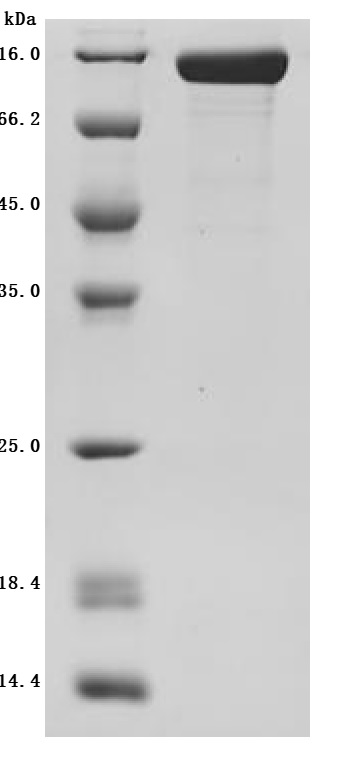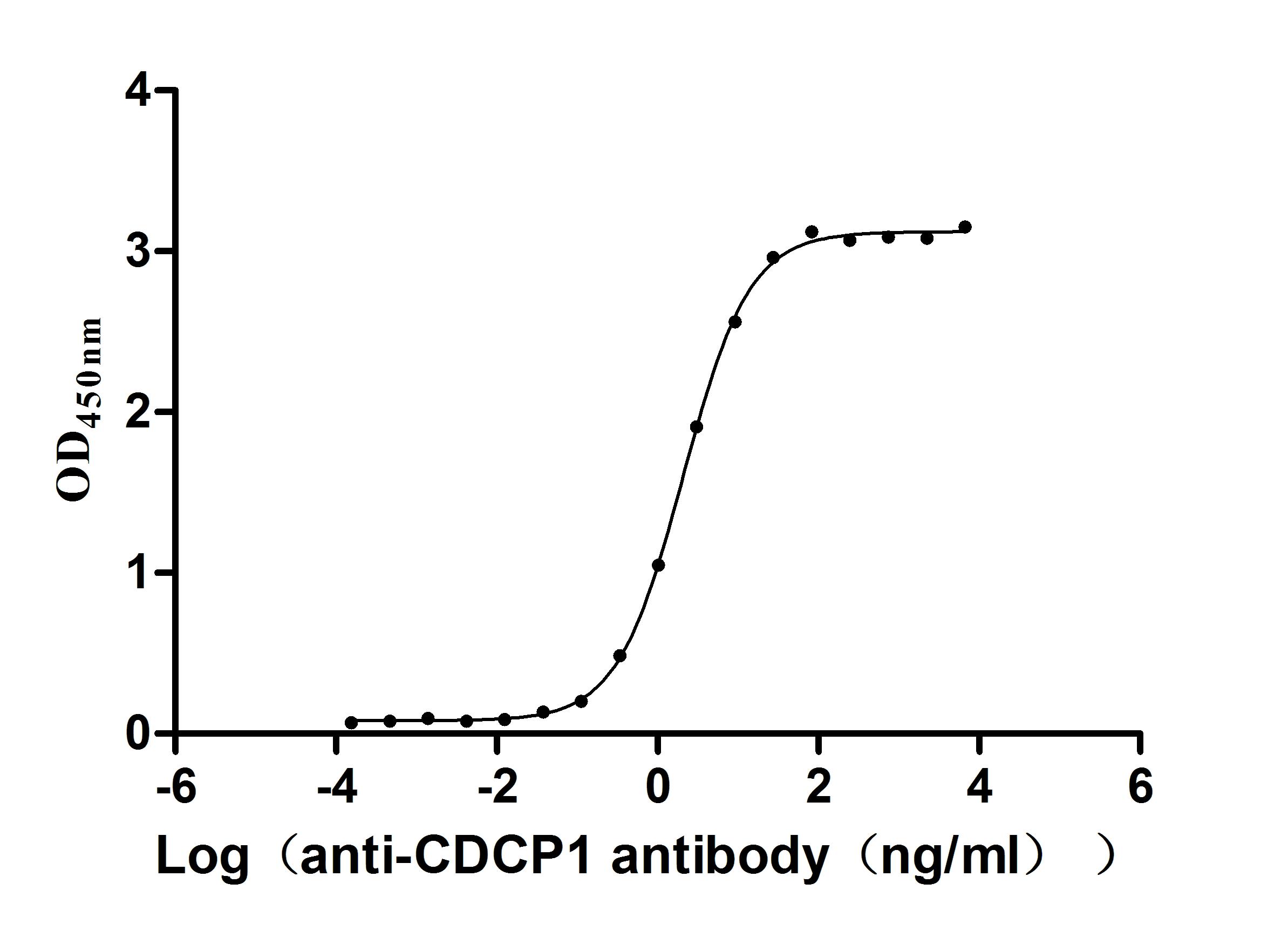CUSABIO produced the recombinant Macaca fascicularis CUB domain containing protein 1 (CDCP1) in the mammalian cell expression system. The gene fragment corresponding to the 30-667aa of the Macaca fascicularis CDCP1 protein is fused with a 10xHis-tag gene at the C-terminus and then cloned into a plasmid vector, followed by transfected into mammalian cells. The transfected mammalian cells are cultured for protein expression. The recombinant Macaca fascicularis CDCP1 protein is harvested from the cell lysate. Its purity is over 95% determined by SDS-PAGE. It contains low endotoxin, less than 1.0 EU/ug measured by the LAL method. Its activity is validated in a functional ELISA. Immobilized Macaca fascicularis CDCP1 at 2 μg/mL can bind anti-CDCP1 recombinant antibody (CSB-RA884474MA1HU), with the EC50 of 1.861-2.330 ng/mL.
CDCP1, a novel human tumor-associated gene reported in 2001, is a transmembrane glycoprotein that exhibits limited expression in normal human tissues but is upregulated in most cancers. It plays a crucial role in the initiation, progression, and recurrence of tumors. Clinical studies have indicated an association between elevated CDCP1 expression and poor prognosis in lung cancer, pancreatic cancer, renal cell carcinoma, ovarian cancer, and hepatocellular carcinoma. The CDCP1-regulated signaling pathways are significant in promoting cancer and mediating resistance to chemotherapy and targeted therapy, making it a potential new target for early cancer treatment. The monkey CDCP1 is highly homologous with human CDCP1, with similar structure and functions. Currently, there are limited studies and no clinical drugs targeting CDCP1. Therefore, the development of Macaca fascicularis CDCP1 protein could aid in both clinical drug research and fundamental research related to CDCP1, facilitating the development of clinical treatments and allowing for animal model testing.








